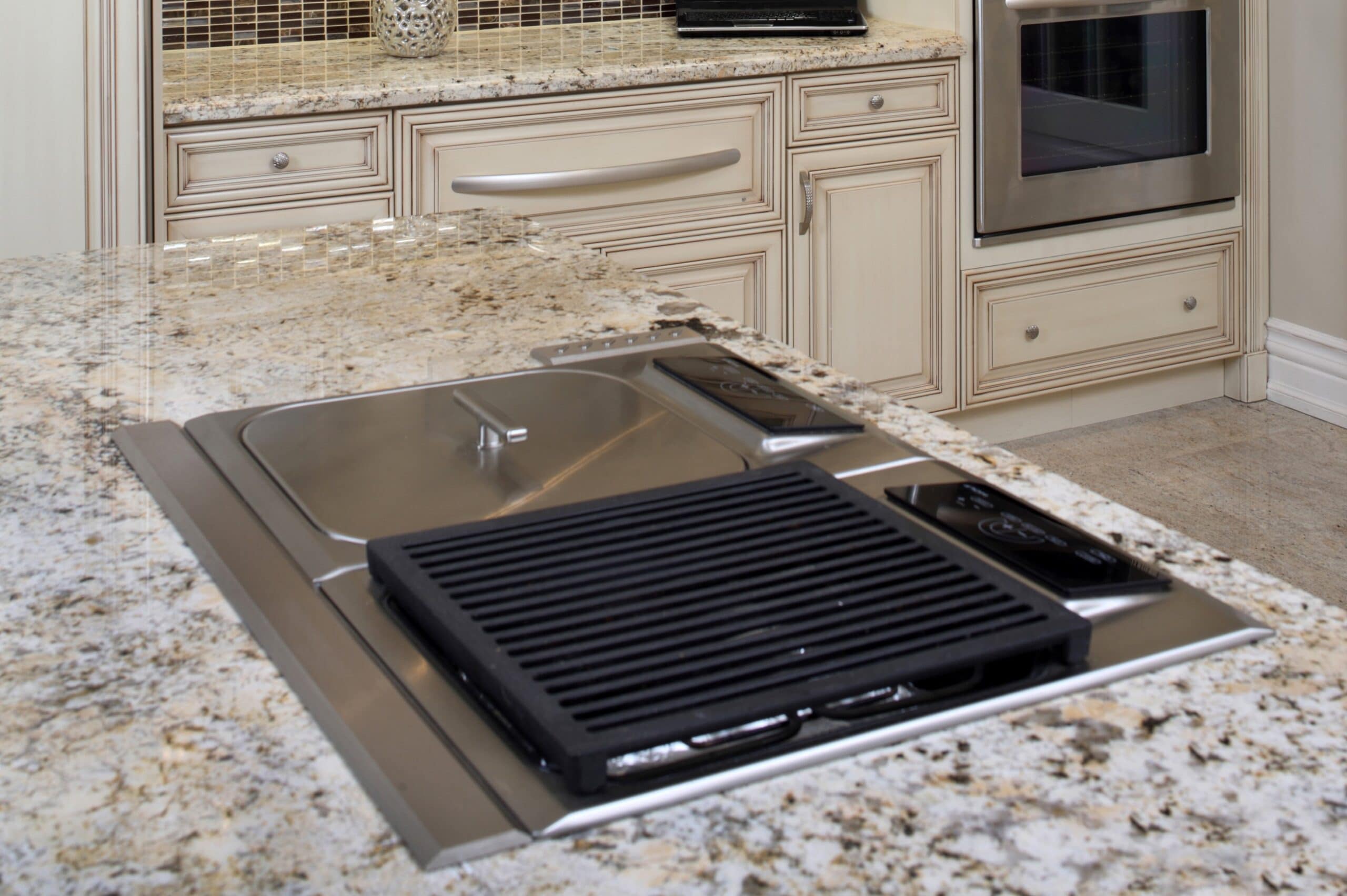
Indoor grilling is gaining in popularity as a way to prepare flavorful meals without the hassle of firing up an outdoor BBQ or braving the elements. Before you begin grilling in your Eastern North Carolina home, it’s wise to learn about its potential effects on IAQ – your indoor air quality – and the smart precautions you can take to keep your family safe and healthy.
How Grilling Indoors Can Impact Your Air Quality
It’s a well-known fact that operating an outdoor grill inside your home is strictly taboo because of it’s effect on indoor air quality. In recent years, there are an increasing number of grilling products available that are specifically made for indoor use, like high-end ranges equipped with built-in grills, grill pans for use on regular stove tops, and specialized stand-alone grilling units. Even though the equipment is designed for use indoors, these grilling options can still pose some serious safety hazards. Depending on the exact equipment and food preparation techniques used, grilling indoors can degrade your air quality with:
- Carbon monoxide. If your indoor grill is fueled by natural gas, propane or charcoal, the combustion process can produce potentially-lethal carbon monoxide. Breathing in small amounts of this invisible, odorless gas causes symptoms like nausea, headaches and fatigue, while exposure to high levels can cause permanent heart and brain damage, or death.
- Nitrogen dioxide and polycyclic aromatic hydrocarbons. Certain cooking conditions can release these hazardous pollutants, such as when fats in meats burn. Once they’re in your air supply, they can cause discomforting symptoms like nose, throat and eye irritation, as well long-term health issues like lung diseases and cancer.
How to Avoid the Hazards of Indoor Grilling
Regardless of the type of indoor grilling equipment you use, be sure to follow the manufacturer’s instructions on how to operate it safely. Ample ventilation is also essential to preserve your IAQ when grilling indoors, so make sure you have an exhaust fan that’s properly sized for the space and vented directly outdoors.
For expert help minimizing adverse effects on IAQ in your home, please contact us today at Jackson & Sons.
Jackson & Sons, Inc.
Our goal is to help educate our customers in Eastern North Carolina (including Wayne, Johnston, Greene, Lenoir, Pitt and Duplin Counties) about energy and home comfort issues (specific to HVAC systems).
Credit/Copyright Attribution: “iStock”